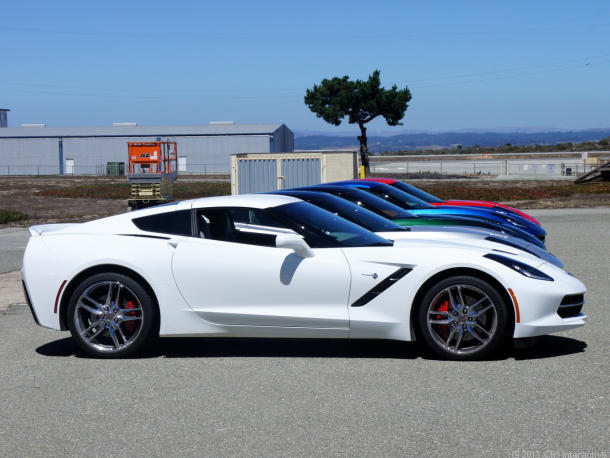America‘s leading technology companies have united to demand significant changes in US surveillance laws, pushing for an international ban on data being collected in bulk in order to preserve their customers’ “trust in the internet.”
The Guardian reports that Apple, Google, Microsoft, Facebook, Yahoo!, LinkedIn, Twitter and AOL have written a joint-letter to Washington in response to the disclosures of NSA whistleblower Edward Snowden.
“The balance in many countries has tipped too far in favour of the state and away from the rights of the individual – rights that are enshrined in our constitution,” the letter urges.“This undermines the freedoms we all cherish. It’s time for change.”
The companies claim Snowden’s revelations have made people afraid of subscribing to them, thus making the NSA a threat to the American economy and private sector.
“People won’t use technology they don’t trust,” said Brad Smith of Microsoft’s general counsel. “Governments have put this trust at risk, and governments need to help restore it.”
Another composer of the letter was Yahoo! CEO Marissa Mayer:
“Recent revelations about government surveillance activities have shaken the trust of our users, and it is time for the United States government to act to restore the confidence of citizens around the world,” she said.
The letter also features a list of five “reform principles” derived by bipartisan legislation to limit the power of the NSA proposed by Patrick Leahy, the Democratic chair of the Senate judiciary committee, and Rep. Jim Sensenbrenner, the Republican author of the Patriot Act.
The tech firms, along with Leahy and Sensenbrenner, agree that the NSA should not be allowed to gather mass quantities of data from people it does not have cause to suspect of terrorism.
“Governments should limit surveillance to specific, known users for lawful purposes, and should not undertake bulk data collection of internet communications,” reads the list of principles.
The companies argue that request for data should be limited by a new set of rules that balance the “need for the data in limited circumstances, users’ reasonable privacy interests, and the impact on trust in the internet.”
Another previous demand repeated in the letter states that tech companies should be allowed to reveal how often requests for data are made.
The proposed legislation directly conflicts with a rival bill composed by Dianne Feinstein, the Democratic chair of the Senate Intelligence Committee, which would cement and protect the NSA’s right to collect data in bulk.
The eight companies also highlight the fear that responses to Snowden’s leaks will not only hurt them commercially, but also lead to the government dividing the web into separate warring units to prevent tech companies from seeking business overseas.
“The ability of data to flow or be accessed across borders is essential to a robust, 21st century, global economy,” the companies argue.“Governments should permit the transfer of data and should not inhibit access by companies or individuals to lawfully available information that is stored outside of the country. Governments should not require service providers to locate infrastructure within a country’s borders or operate locally.”
They also argue that foreign governments should agree on a new set of standards for regulating surveillance in order to prevent legal disputes that could damage international trade.
“In order to avoid conflicting laws, there should be a robust, principled, and transparent framework to govern lawful requests for data across jurisdictions, such as improved mutual legal assistance treaty – or “MLAT” – processes,” say the companies. “Where the laws of one jurisdiction conflict with the laws of another, it is incumbent upon governments to work together to resolve the conflict.”
Internet pioneer Martha Lane Fox, a former digital ambassador to Britain, told the Guardian that the letter displays a lack of understanding regarding the scale and complexity of the British government’s surveillance programs.
“We do have an issue in this country among the corporate world, the political establishment and the general population where we have a shortage of skills and understanding for the digital age,” she said.“There is an absence of a clear, coherent debate around this subject in this country and it’s a very big issue that will only become more frequent the more technologically dependent we become. [The government] needs to listen to people, to examine whether their policies are fit for the digital age. It’s not that people aren’t used to their data being collected, but what it is being collected for, and there needs to be a distinction between the average person and a security threat.”
The letter concludes with the eight companies stressing that all businesses have the responsibility to protect the privacy of their clients or customers.
“For our part, we are focused on keeping users’ data secure, deploying the latest encryption technology to prevent unauthorised surveillance on our networks, and by pushing back on government requests to ensure that they are legal and reasonable in scope,” it says.“We urge the US to take the lead and make reforms that ensure that government surveillance efforts are clearly restricted by law, proportionate to the risks, transparent and subject to independent oversight.”
Google, Twitter, Yahoo! and, as of last week, Microsoft have all heightened the security of their products by introducing “perfect forward secrecy,” a type of encryption that protects data on their internal systems.
“The security of users’ data is critical, which is why we’ve invested so much in encryption and fight for transparency around government requests for information,” said Google’s chief executive, Larry PageThis is undermined by the apparent wholesale collection of data, in secret and without independent oversight, by many governments around the world. It’s time for reform and we urge the US government to lead the way.”
Via: The Guardian, Top Photo Credit: Justin Sullivan/Getty Images
 Kanto Freestyle Breakfast
Kanto Freestyle Breakfast











